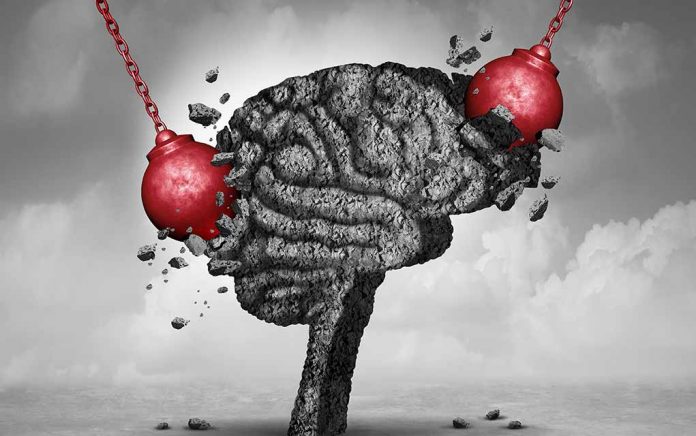
Not getting the recommended 7 to 8 hours of sleep per day? Your brain could be melting down. New research shows that your brain performs vital functions that keep your brain healthy when you sleep. Sleep deprivation disrupts these processes, leaving your brain vulnerable.
If you’re not getting enough sleep, your brain could be in self-destruct mode. A natural process called astrocytic phagocytosis is to blame. In this process, your brain deletes unnecessary neural connections at night when you sleep. A sleep deprived brain may delete essential connections, resulting in impaired function and performance. Learn more about how sleep deprivation affects your brain.
Learn How Sleep Deprivation Eats at Your Brain.
Sleep Makes Your Brain Healthy
Sleep is a wonderful thing. It energizes your body’s cells, clears waste from your brain, supports learning and memory and regulates your mood and appetite. When you get enough sleep, you can conquer the world, or at least you will feel like you can.
Scientists are learning more about how sleep affects the body, especially when it comes to the brain’s natural “cleaning out” process. When you sleep, your brain cleans up or clears neurons, synaptic connections and toxic byproducts that you don’t need. You can liken it to organizing your desk at the end of a hard day. The work you do will make it possible for you to make sense of things and perform better tomorrow. The same is true of your brain.
Your Brain without Adequate Sleep
When you don’t get enough sleep, your brain still goes into cleaning mode. The problem is it goes into a frenzied cleaning mode where some good stuff also gets cleared out. This process is called astrocytic phagocytosis, and it literally eats away at your brain.
Imagine throwing away everything on your desk at the end of the day. There’s bound to be something there that you will need. The same thing happens in your brain. Lack of sleep damages or interrupts connections in your brain, resulting in compromised judgment, decreased reasoning, impaired alertness, forgetfulness and impaired problem solving.
How to Get Regular Sleep
If you have difficulty sleeping, the National Sleep Foundation recommends the following:
- Stick to a schedule
- Engage in a bedtime ritual
- Avoid naps and oversleeping
- Create a comfortable area for sleep
- Avoid bright light in the evenings
- Avoid alcohol, nicotine and heavy foods in the evening
- Turn off electronics one hour before bed
Still having trouble sleeping despite all your best efforts? Struggling with insomnia? Talk to your doctor immediately. Better sleep is possible.
Your brain needs a certain amount of sleep to be healthy and perform at its best. As you can imagine, chronic sleep deprivation causes more damage than a restless night or two. If you struggle with chronic sleeplessness, it’s vital that you get the help you need to start sleeping better.
~Here’s to Your Healthy Ascension!
Copyright 2019, AscendHealthy.com













